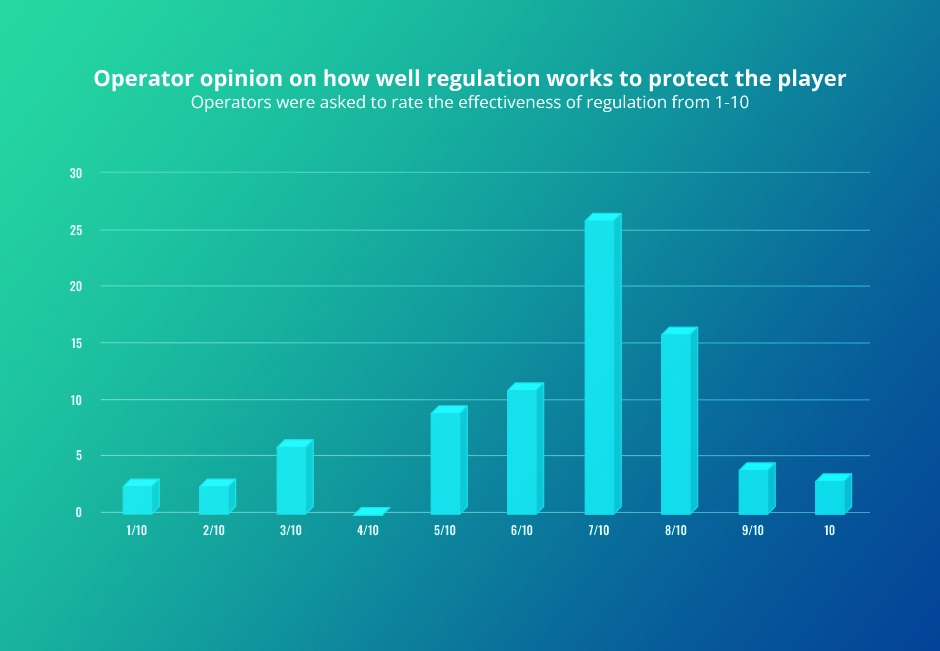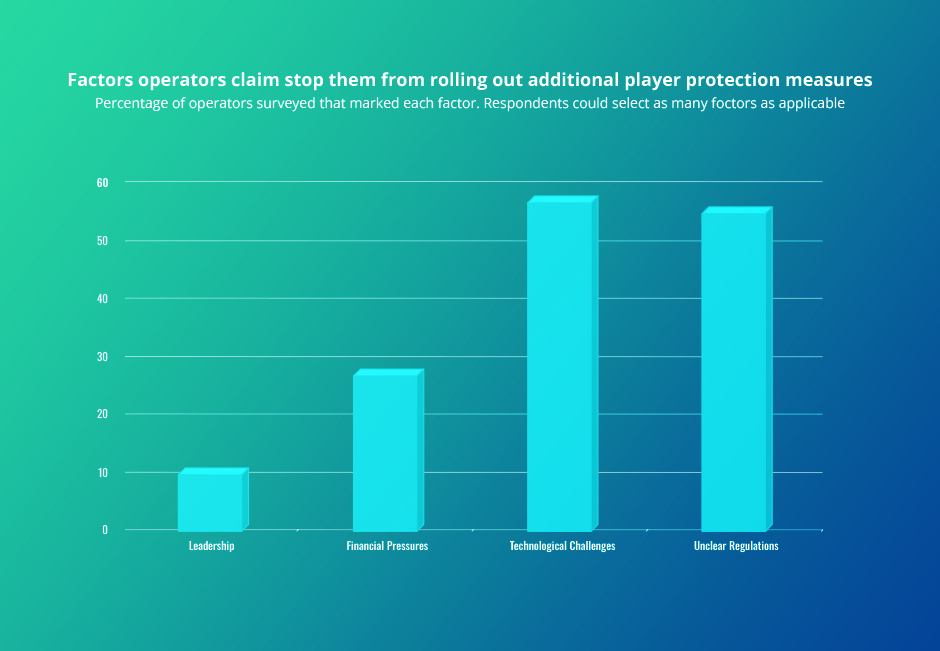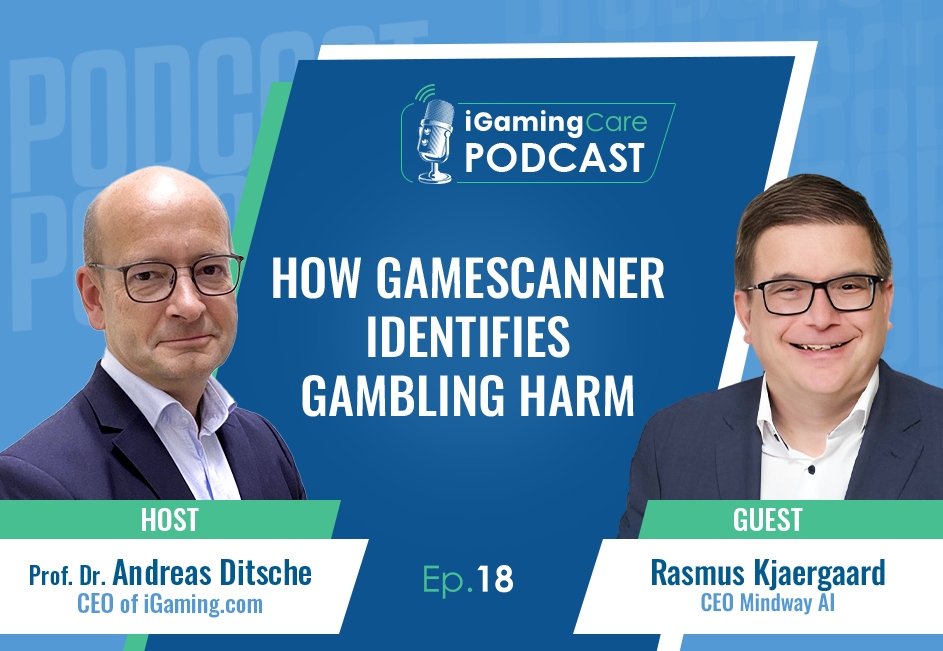
Why Europe Struggles to Create a Unified Safer Gambling Standard

A new report reveals that around 70% of online gambling operators in Western Europe must adjust their safer gambling practices by market. Conflicting regulations force companies to adopt different player protection policies in different countries.
This operational inconsistency highlights how it is extremely difficult to apply a single gold standard across the continent. As a result, companies face challenges in keeping players safe under contradictory rules.
This article examines the barriers that prevent the implementation of a safer gambling standard across Europe. We’ll look at the ethical implications and practical consequences of maintaining different player protection policies. We also explore how inconsistency may push at-risk players toward unlicensed gambling sites.
A Patchwork of Conflicting Rules
The International Player Safety Index is a report commissioned by 1xBet and developed with SBC. It surveyed operators and regulators across nine regulated markets (the UK, Ireland, Germany, Italy, Spain, Portugal, Denmark, Sweden, and the Netherlands) to understand how they approach safer gambling.
When asked how effective they thought regulation was at protecting players in their primary market, around 60% of respondents gave a score of 7 or higher out of 10.

Source: 1xBet & SBC Media, International Player Safety Index – Western Europe (2025)
However, the results were less positive when it came to operating across borders. European gambling regulations vary dramatically by country, forcing operators to navigate often contradictory safer gambling requirements.
According to the report, approximately 70% of operators meaningfully vary their approach to player protection from one jurisdiction to another, rather than adhering to a single policy.
While a minority of around 30% attempt to apply one uniform standard everywhere, even these companies admit they must make local adjustments to stay compliant.
The realities of doing business in different jurisdictions present major hurdles to maintaining the highest possible player safety standards across Europe.
“One of the key issues are the restrictions of each regulation, which can turn a particular market’s critical tool into a regulatory breach for a different one.”
Industry expert, anonymous survey respondent
These inconsistent rules create difficulties for compliance teams. What’s considered best practice in one country may result in an operator being fined in another, leaving global operators with no choice but to juggle multiple policies.
Ethical Impact: Players Caught in the Gaps
Regulatory inconsistency has real human consequences. Operators report that problem gambling behaviors are similar across the different markets in Western Europe. However, players receive uneven protection depending on their location.
Industry experts widely agree that it is essential to intervene early when a player shows signs of developing a gambling problem. In theory, a universal early-intervention strategy could help vulnerable players in any country. In practice, however, rules in different countries make that impossible.
A customer showing clear signs of gambling harm might trigger swift protective action in one jurisdiction but continue gambling with little interference in another. From an ethical standpoint, the inconsistency is troubling.
Portugal vs. UK
No contrast illustrates Europe’s divide more clearly than that between Portugal and the United Kingdom. In Portugal, regulators discourage or penalize operators for acting too quickly in response to signs of problem gambling. One operator primarily active in the country claims that regulation actively prevents them from protecting players.
“We’re not able to restrict accounts when we notice problem behavior. The regulator is very concerned about this… we can’t suspend at the first signal of problem behavior.”
Portugal-based operator, anonymous survey respondent
In Portugal, an operator must gather extensive evidence of sustained harm before intervening. If they block a customer too early, they risk being penalized for unjustified restrictions.
Portugal’s authorities value the economic freedom of consumers. They allow gamblers to continue betting until harm is conclusively demonstrated, even if it delays potentially helpful safeguards.
In contrast, in many other European markets, such as the UK, regulators take the opposite stance. British operators are expected to take proactive steps at the first sign of risky gambling behavior. Early interventions might start with:
- Safer gambling messages
- Suggestions to set deposit limits or take a cool-off
- Prompts to speak to the support team
The UK Gambling Commission is far more likely to punish a company for waiting too long to block a problem gambler’s account than for being too proactive in cutting someone off. This approach treats early action as the lesser of two evils. It prioritizes player well-being even at the cost of possibly inconveniencing some customers.
One Company, Many Safer Gambling Polices
For compliance teams, Europe’s complex regulatory landscape requires separate policies for each market. Some operators have tried to simplify matters by voluntarily adopting the strictest standard across all jurisdictions. For instance, several survey respondents stated that they use UK-level protection as a baseline everywhere, even in areas where local laws are less strict.
“Each jurisdiction has their own regulations, but we tend to use the most strict market regulation across all customers in order to improve customer outcomes, our efficiency and reduce complexity for our staff.”
Gambling operator, anonymous survey respondent
By treating all players as if they’re in a tightly regulated market, these companies aim for consistency and err on the side of caution.
However, many firms find that a single global policy doesn’t work when rules conflict. Operators often end up running multiple compliance regimes in parallel, one for each license they hold. This means they must:
- Train staff on safer gambling rules in different countries
- Configure monitoring systems with country-specific triggers
- Adapt customer interventions to local problem gambling definitions
This approach drives up operational costs. The lack of a unified standard also means that lessons learned in one jurisdiction aren’t always transferable. A responsible gambling tool proven effective in one country may require modification or approval from a different regulator before being used elsewhere.
Slow-moving or restrictive regulatory regimes can stifle innovation in player protection. Operators must carefully balance compliance with genuinely helping players. The task is made harder given that the definition of “doing the right thing” varies by country.
Contradictions Fuel the Black Market
Industry experts warn that Europe’s conflicting safer gambling standards may inadvertently push players toward unlicensed operators. Ironically, that undermines the very goal of protecting consumers.
Markets with overly strict rules are fueling the rise of offshore gambling sites that ignore player protection safeguards. In Germany, overregulation has backfired, as strict restrictions, including a €1,000 monthly deposit limit, have driven players to the black market. Meanwhile, intrusive new affordability rules in the Netherlands are having a similar effect.
When regulations become overly restrictive, unclear, or fail to address player needs, users do not simply stop gambling. They turn to unlicensed, offshore sites that offer no protection at all.
Collaboration for Better Player Protection
In the survey, operators were asked what prevented them from implementing extra player protection measures. Technological challenges and unclear regulations were the main factors.

Source: 1xBet & SBC Media, International Player Safety Index – Western Europe (2025)
Despite the various barriers that hinder a standard approach to safer gambling, progress is being made. EGBA’s standardized markers of harm were recently approved by the EU. They outline a common set of behaviors that operators across Europe can use to identify early signs of problematic behavior.
The report also highlighted that regulators are in regular dialogue regarding best practices for player protection. Authorities across various European markets are collaborating to identify emerging risks and address them proactively.
As regulators introduce new rules and initiatives, other countries are looking at their effectiveness. For example, the UK is working on a new program for financial risk assessments. As affordability checks are not widely implemented across Europe, regulators will be monitoring the scheme to see if it yields results.
In Spain, the DGOJ will launch a mandatory harm detection algorithm in 2026. The technology will provide standardized tests to help operators identify when players may be gambling irresponsibly. This technological advancement could become a best practice for other markets.
The Future of Safer Gambling Standards in Europe
Operators indicated that the future of safer gambling relies heavily on technology, such as artificial intelligence and personalization. Moving towards proactive and personalized tools will enable operators to identify problematic behavior early and tailor their interventions to suit individual players.
However, the question remains whether regulators will adapt. Advancing technology offers the potential to improve player protection standards significantly. Yet, conflicting rules and political barriers across different countries will still need to be overcome.
Until they are, Europe’s safer gambling standards remain a work in progress. The challenge is to close the gaps before more players fall through the cracks.

